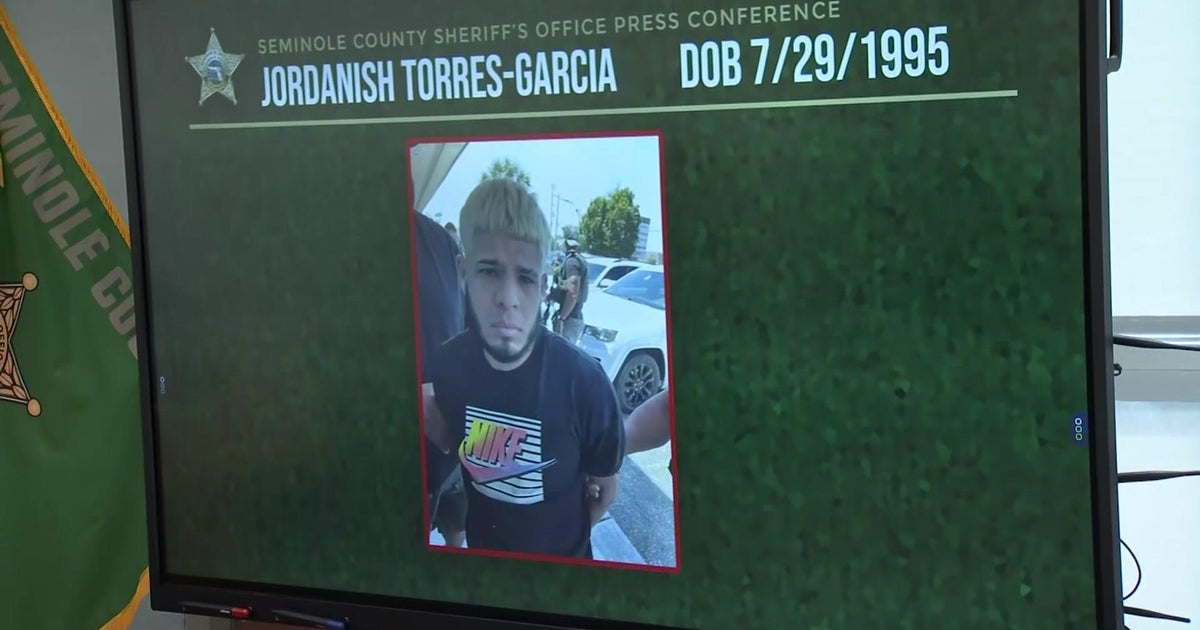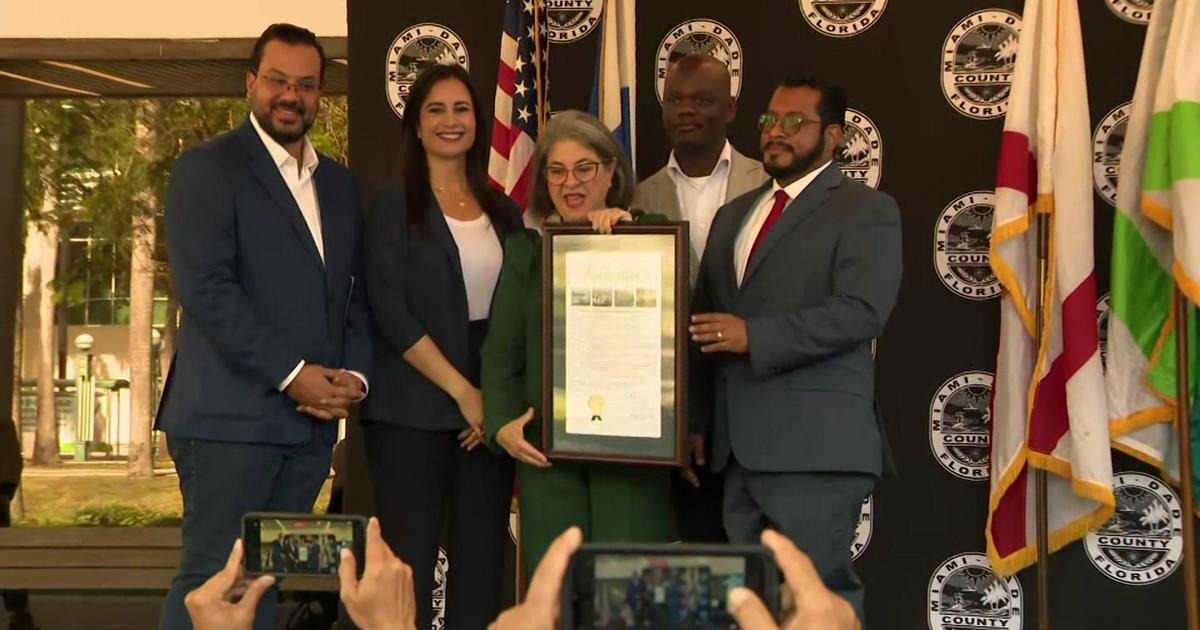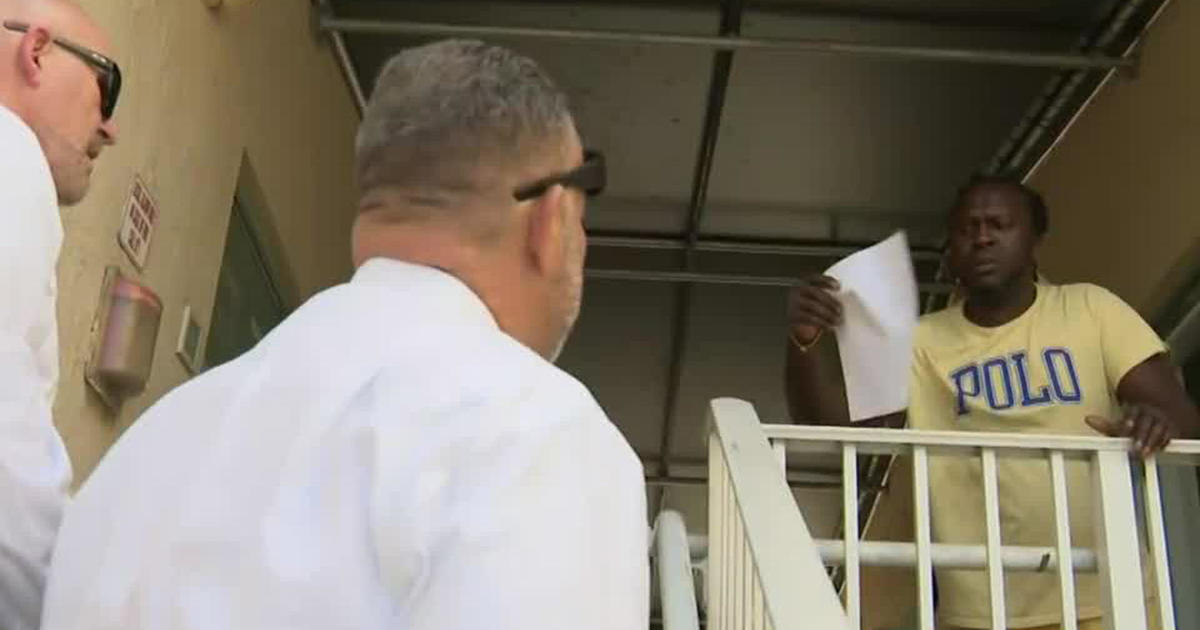Vets Use Electro-Acupuncture To Help Tortoise Recover From Injuries
Follow CBSMIAMI.COM: Facebook | Twitter
FORT LAUDERDALE (CBSMiami) -- Veterinarians are employing an unusual technique to help a slower-than-normal tortoise recover from an apparent confrontation with a car.
Someone found the Gopher tortoise with a cracked shell, noticed its painful-looking walk and took it into the South Florida Wildlife Center for treatment.
"She probably got hit by a car, maybe flipped over and scraped up on the road," said Dr. Renata Schneider. "We were concerned when she came in that she might have a fractured, either, spine or legs."
The X-ray revealed no broken bones but vets think there is nerve and soft tissue damage. And they found an even bigger surprise.
"We took the X-ray to make sure that her spine wasn't broken and then we found she has seven eggs that are close to being laid," said Dr. Schneider. "We're trying to stimulate the nerves in her legs to try to improve her function."
If those hind legs aren't repaired, there could be trouble digging a burrow and laying the eggs. So doctors are using electro-acupuncture to trigger the animal's motor functions.
"So now we will connect electrical leads," said veterinary acupuncturist Dr. Carolina Medina from Coral Springs Animal Hospital. "This is going to send a mild electrical current. This gives stronger stimulation than the needles alone, so it's especially useful for either pain management or when we're trying to stimulate nerve function."
The South Florida Wildlife Center hasn't used this kind of treatment until this case, but it seems to be going well. On Wednesday, the tortoise received her fifth session.
"She does use a lot more force with the front, which the front appears to be normal," said Dr. Medina. "But with each treatment, her legs in the back appear to gain a bit more strength to propel her forward."
Wednesday's session showed signs of progress.
"She's actually motoring today," noted Dr. Medina. "We haven't seen her move this quickly since she came in to us."
Vets are now hoping the rehabilitation will help this 10-year-old mommy-to-be reach her species' expected lifespan, which can be about 70 years old.



